A Vivir Que Son Dos Dias is a weekend Spanish radio programme hosted by Javier Del Pino.

I recently came across this description of the programme, provided on the programme’s podcast site:
A Vivir, dirigido y presentado por Javier del Pino, quiere ayudar a que los oyentes disfruten del fin de semana sin que nadie les recuerde las complicaciones de su vida. Pretendemos recuperar la radio de acompañamiento y de diversión, pero también la radio alternativa. No hablamos con políticos sino con quienes deberían serlo. Cambiamos las tertulias de “opinadores” por las charlas con auténticos expertos en el tema que tratemos.
A Vivir, led and presented by Javier del Pino, aims to help listeners enjoy the weekend without anyone reminding them of the complications on their life. We want to rejuvenate the idea of radio as company and entertainment, but we also want to provide an ‘alternative’ radio. We don’t speak with any politicians but rather with those who ought to be politicians. Rather than present a gathering of opinions, we talk with genuine exports on the themes of the day.
They tend to avoid talking with politicians
This description helps me to identify what I like about the programme.
They don’t talk to politicians, so you don’t end up listening to a load of anger triggering rhetoric, which is designed ultimately to affect emotions in preparation for a general election. Instead you listen to a load of people who in a more relaxed and calm manner provide a perspective on events and situations.
They fail in their objective of providing company, entertainment and helping people forget their problems
However the idea that the programme helps people enjoy the weekend – I’d have to question. Whilst the programme doesn’t interview politicians directly it does spend at least an hour going over the political rhetoric – and it kind of makes your blood boil to hear all the bullshit and politicking that takes place that week – that is not helping me forget my problems, bur rather adding to them.
The thing is, journalists, and Javier Del Pino, have a choice in this, they can spend their and the listeners’ time focused on politicians’ rhetoric or look at something else. To be honest, by spending a whole hour on what the likes of Ayuso, Vox, Casado and other pricks from the right of politics have to say, they end up bringing alot of misery to listeners, rather than enjoyment.
I also think that a lot of the issues that they cover: racism; mysogyny, poverty and the victims of violence and sexual crimes; whilst worthy causes aren’t entirely enjoyable to listen to. If anything coverage of these topics is likely to do precisely the opposite of what it claims it is intended to do: i.e. it probably does precisely remind people of the problems of their life.
Without intending to they consistently undermine democracy
Javier Del Pino and his colleagues moan about the fragile state of democracy in Spain, and the threats that are posed to it. However, in my view, they contribute significantly to the destruction of democracy with statements like this.
We don’t speak with any politicians but rather with those who ought to be politicians.
This statement is incredibly cynical, childish and simplistic because it paints politicians as:
- A tribe apart from the rest of the society.
- As being all fundamentally the same.
- A caste, which somehow manipulates and feeds off the people.
In this way statements such as this paint democracy as a system which is designed by the political caste to perpetuate their power, and gives the impression that so-called democracy, is really a kind of political oligarchy. When different sides of the political divide argue and cannot come to an agreement, the view is that somehow this is down to the immaturity of politicians. It isn’t, its down to the fact that they cannot fundamentally agree on key points, which in turn is a function of the fact that the people who vote for the politicians have incompatible views on key issues. This view, that politicians are all the same and united in their cynicism and manipulation of the people, is consistently reinforced on the radio station Cadena Ser. I heard another of their broadcasters, Pepa Bueno, making a comment about politicians not using common sense. Javier Del Pino is consistently complaining about why politicians from different political parties cannot work together – its easy – its because the people they represent have different issues and agendas – research that Javier – go and do a complex class analysis of society – rather than resorting to lazy oversimplifying admonishments of the political class.
Politicians are a product of the society and the people who give rise to them. Furthermore, at least in democratic terms, they deserve their position and role, because they have been voted for. It is like I said childish, over simplistic, misleading and dangerous of Javier Del Pino and his colleagues on Cadena Ser to launch blanket criticisms of politicians per se. Rather they ought to be more objective and analyse the contradictions in politics, and look as much as the reasons for why people vote for and favour such differing parties and positions, and look at the forces in communication, finance, economics and society that help shape those views.
It is, for example, OK in my mind for the Socialist government of Spain to have disagreements with the right-wing government of Madrid, on the issue of how to manage COVID. But rather than concluding that politicians, as a whole, are failing Spain, because they cannot reach an agreement on the way forward, they should instead simply report that an agreement has not been reached, and analyse the factors, behind why an agreement cannot be reached. Those factors lie in part in the different political choices made by Spaniards generally and in Madrid in particular, in the political system of Spain which gives a lot of power and control to local areas and in the immediate interests of those who govern at the local level vis-a-vis those at the national level. Report on that, analyse that. Its more of a challenge, its much more complex than trying to reduce everything to being the fault of ‘politicians’. But when Javier Del Pino and his crew resort to the latter, rather than to addressing the former, it is just, in the end because they are too lazy, and their laziness leads to anti-democratic cynicism which I find sickening.
I heard the same kind of discourse both on Cadena Ser and amongst Spanish people, when discussing the political situation a few years back, when the right wing party Partido Popular formed a minority government. I think the party needed some votes from the Socialist party to get their budget through or something, but the Socialist party wouldn’t. Of course the right wing government suggested that the socialists were holding up the interests of Spain for their own political gain, whilst the socialists were arguing that they couldn’t and wouldn’t vote through the right wing party because they couldn’t support its policies. The socialists were of course quite entitled to withhold their support, they had been voted by millions of people to protect their interests and were acting accordingly. However, time after time I heard radio commentators and people moaning about how politicians, being all the same, should have reached an agreement for the benefit of the people. Again, this is such a simplistic, childish reaction to a fundamental political disagreement between two parties, voted by people with very different views and interests. The stand off was not about the political system, it was not about democracy, it was about a fundamental difference of opinion between two sections of the voting population, and a mature discussion on this issue would have looked at why the interests of the people who voted for the two parties stood so far apart. When one blames democracy for the fact that people have elected two parties that cannot agree with each other, one is implying that one side ought to have the right to bludgeon the other one into submission. It is painting a picture which implicitly advocates for totalitarianism and dictatorship.
It is also, in some ways, a denial of the fact that there are some inherent contradictions, tensions and oppositions in society, that cannot be easily resolved. By claiming that politicians are immature for not being able to reach an agreement, is to eschew and want to treat as a taboo the experiences, feelings and circumstances of the people who vote for these parties. Furthermore, it is arguably, a function of the fact that those who make these complaints, like Del Pino and his associates, have a particular view and preference for the values that the government should hold, and seeing that the political system does not deliver their preferences, they are quite ready to rubbish the whole system, rather than face up to the fact that the prevalent political mood on both sides of the divide, is quite different to what they would prefer.
Javier Del Pino

Javier Del Pino had a career as a journalist in the United States of America, before he was invited to present A Vivir. He is a Madrilenian, having been bought up in the Usera district. In 2020 in the middle of the coronavirus pandemic he visited his mother, who still lives in Usera, as part of a programme looking at the lives of the people who lived in the district. Usera had been identified as one of the areas of Madrid, which had had the highest rates of infection.
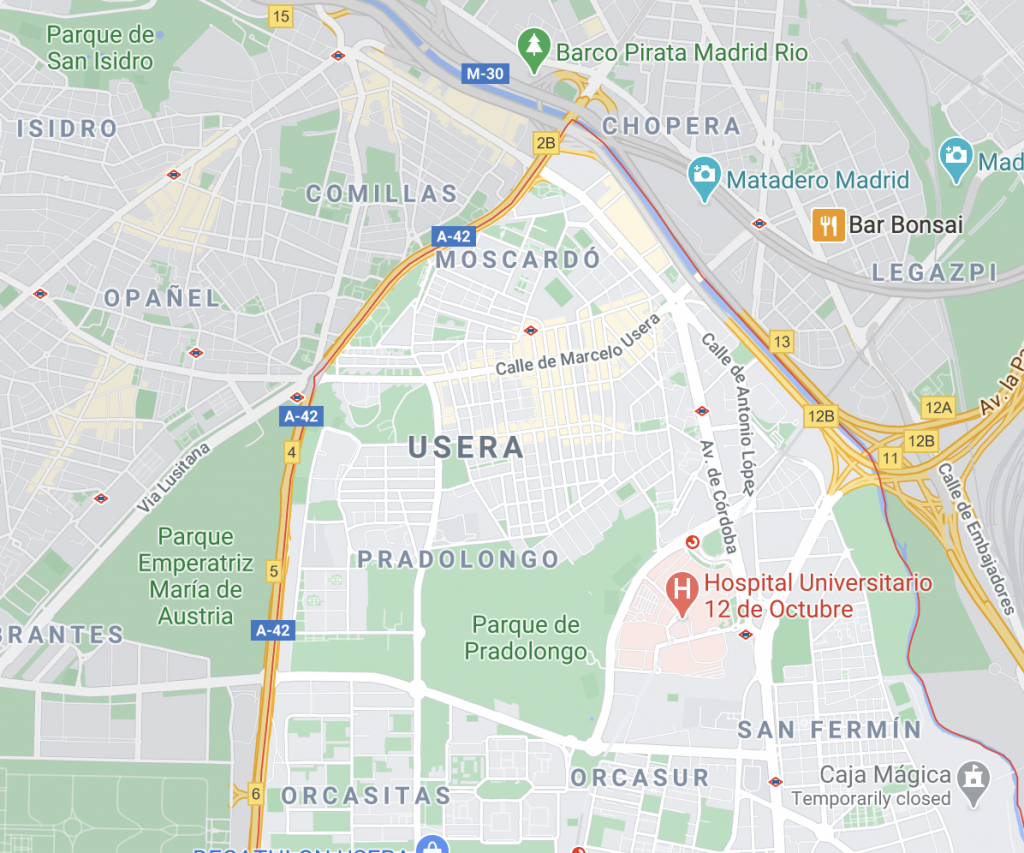
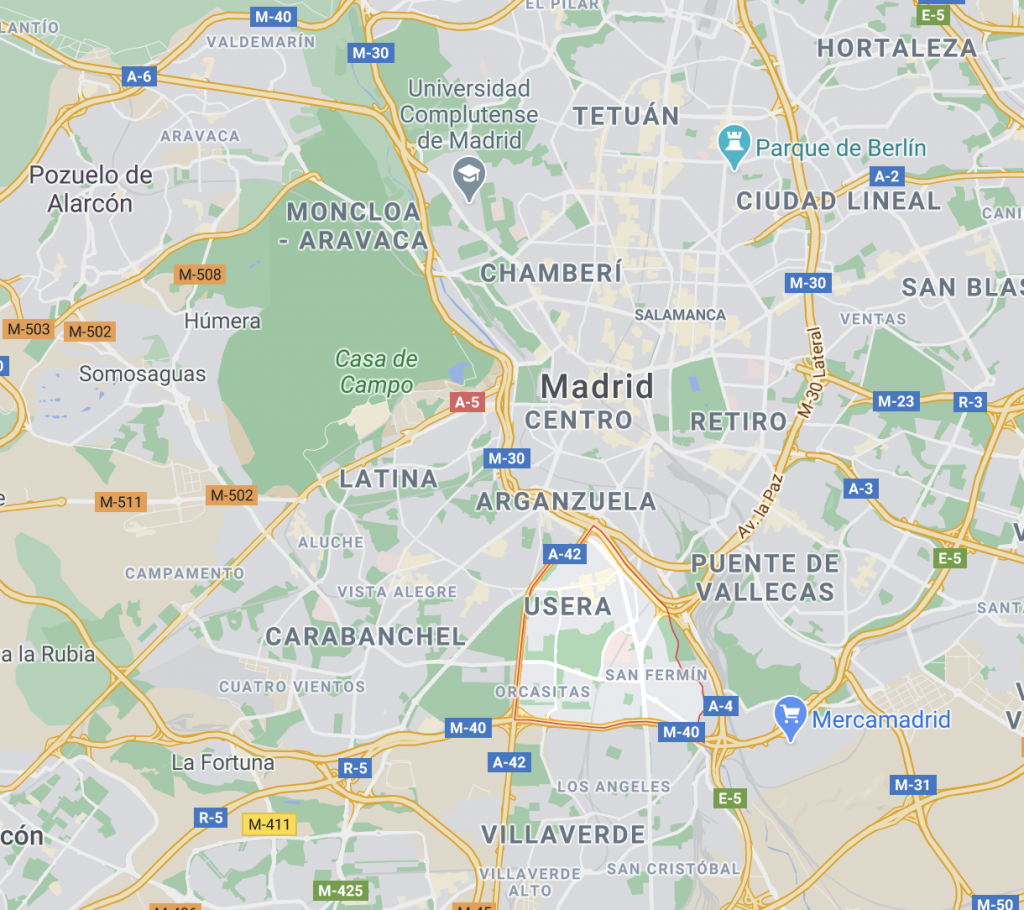
Guests
Javier del Pino has some great guests on his show. They are in part what makes his show so listenable.
David Broncano
David Broncano is Spain’s answer to Russel Brand, although it has to be said he would appear to be a lot healthier in the mind and generally speaking Russel lite.

James Rhodes
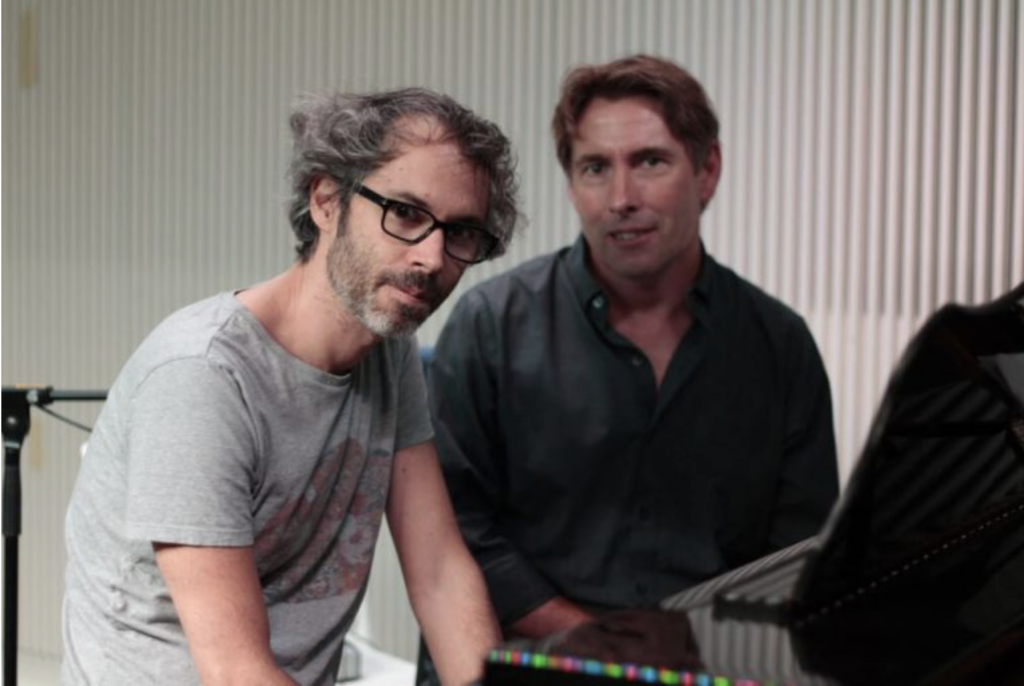
James Rhodes is an English pianist, who a few years back decided to decamp from London to Madrid. Somewhere along the way he was invited to appear on A Vivir and since then has been a regular guest on the show. I’m not sure I’ve ever heard Rhodes interviewed in the UK, but I’m familiar with him through his interviews with del Pino. He comes across as outspoken, jovial, keen to embrace Madrid, Spain and Spanish, playful and young at heart.
I’m not sure about how well known he is in Madrid and Spain generally, but it seems that he is fast becoming some kind of adopted son. Certainly there’s a fair chance that more Spaniards know who he is than Brits. He is famous for his music and for the way in which he has spoken and written about abuse that he suffered as a child.
Manuel Burque
When I first heard Manuel Burque on the radio I thought I was listening to an old woman. It took me three to four weeks to realise that the woman was called Manuel, and later internet research revealed she was in fact a relatively young man.
He used to do comical features for Javier in the early days of the show, and then moved on to take on the role of David Broncano, when Broncano left, patrolling the streets of Spain (usually in Gran Via in Madrid, just outside the offices of CadenaSer) with a microphone, and doing short interviews with members of the public.

Angela Quintas
Angela Quintas is a nutritionist.
Javier Pérez Andújar
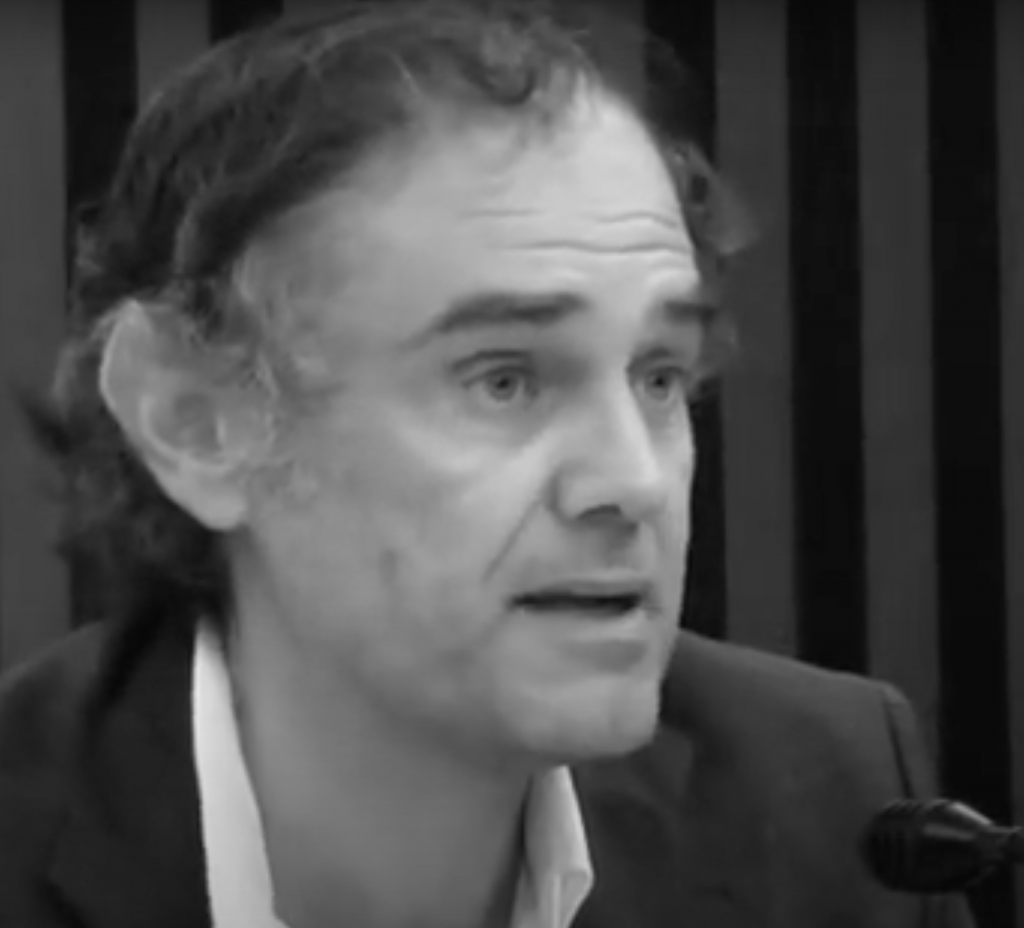
Javier Pérez Andújar is a Spanish author.
Juanjo Millas
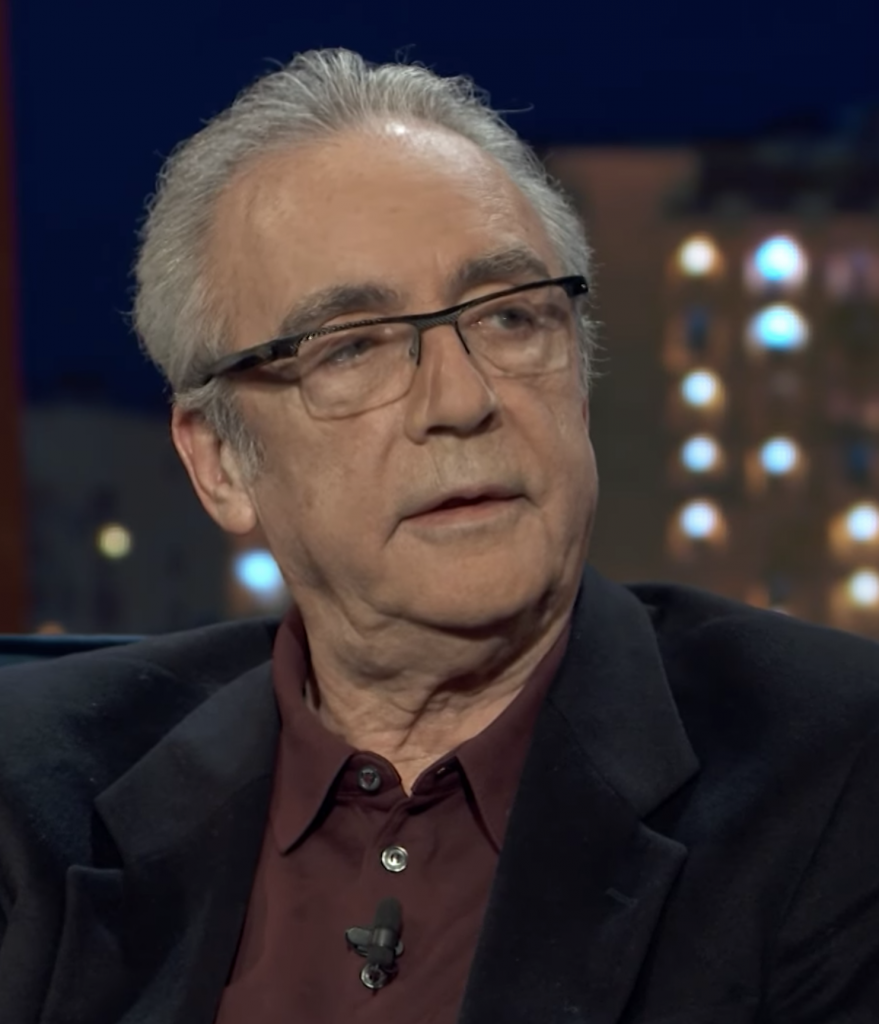
Juanjo Millas is an author and a commentator in the El Pais newspaper, which I believe is part of the same company that owns Cadena Ser. He also makes a weekly appearance of Javier Del Pino’s show where he gives his view on various political and cultural issues.
For a non-native, Juanjo has one of those voices which is very difficult to tune into. There are some older people in Spain, whose consonants are so soft that when they talk it sounds like an endless string of vowels punctuated with the softest consonant sounds.
Millas is an author and tends to do sociological-philosophical pieces on Javier’s show – and is often allowed to meander, drawing out nuances, subtleties and digressions.
Sofisman and Nino Logo
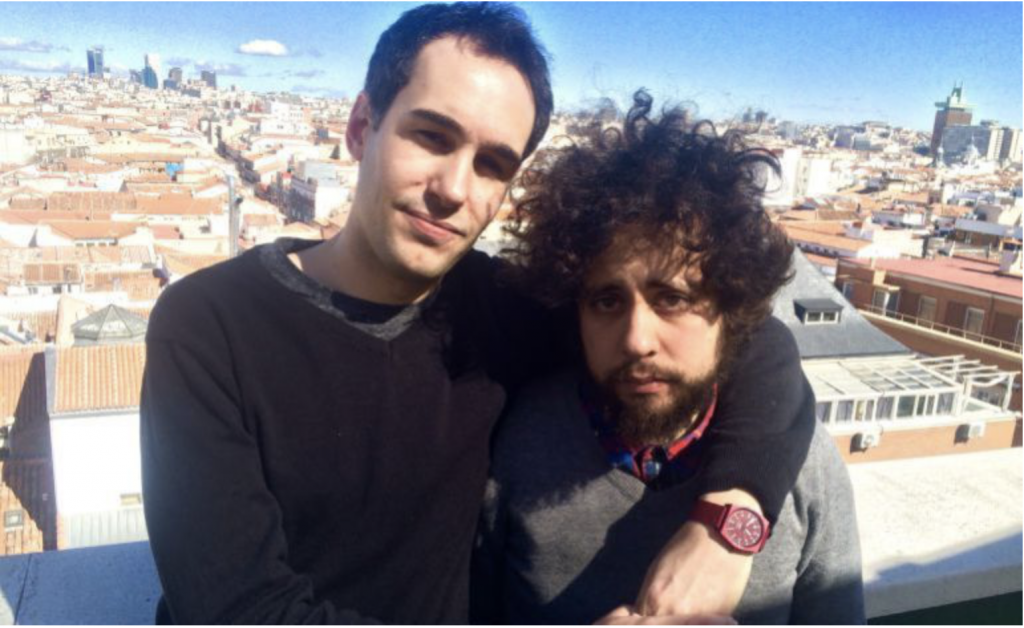
Sofisman and Nino Logo are regular guests, who take a comedic look at philosophy, usually picking up on some strand of it that resonates with a recent news item. They are quick thinking, very good at explaining concepts and have the extra special ability of doing all that whilst being funny. It is no surprise that they maintain a satirical news website called ‘El Mundo Today’.
They are quite brilliant. I just took a quick look today, 22nd October, and found this article, commenting on the fact that Pablo Casado, head of the Spanish version of The Conservatives, who having for so long courted and allied with the far right Vox, has decided to turncoat and today really went for them. The headline is funny because until recently Casado was suggesting that both Vox and PP were some kind of bulwark against what PP politicians had been labelling the Bolivarian communist dictatorship of the democratically elected Socialist coalition government.

Ramon Lobo
Ramon Lobo, I think, was the first person on Javier’s line-up, the first hour of the show on Saturday would open with an hour’s worth of discussions on political developments around the world, usually focusing on zones of conflict and places experiencing one kind of crisis or another. Lobo came across as a nice bloke and having a (slightly unhealthy) obsession for the finer detail, that meant he was a fantastic informant, he could fill you in on all the nuances on any given situation. He provided a clean crisp start to the day.
Sadly Ramon Lobo died in the summer of 23, which meant that an institution created by Javier Del Pino had to come to an end.
Maria Hinojosa
An occasional guest on the show is Maria, an American journalist, who speaks with great insight on the minds of those who voted for Donald Trump.

Ignatius
Ignatius, a comedian, who does alot of work with David Broncano, has had a few appearances on the show. He’s a nice guy. Ignatius, when he speaks on Javier’s show, is more clever than funny, though he is billed as a comedian. He also, underneath it all, appears to be quite a sad person – I find it quite endearing.

December 2017
Political bias
Having said that, arguably, the programme is politically biased towards the soft left and centrists in the main.
Political cynicism
The programme is also quite cynical about politics. For example by drawing a distinction between experts and politicians it helps perpetuate the myth that politicians are a different type of breed to the rest of the population, more cynical, hungry for power and clever, and ultimately manipulative, abusive and of no value. This is inaccurate because politicians are drawn from and representative of the people, and it is also dangerous to democracy, because it helps breed the sentiment that ‘all politicians are the same’ whether dictators or democratically elected. This idea, of course, fails to grasp the fact that a democracy is not just about politicians, it is a system through which people in society can relate to each other, which acts imperfectly to protect the right to freedom of speech and to give people a degree of political power.
Swearing
They swear alot on Spanish radio. Even on relatively speaking mild mannered politically liberal programmes like A Vivir. Almost everyone does it – I think I’ve even Javier del Pino do it – I say even because Javier del Pino hardly ever swears. They use:
- Coño, which pretty much translates as ‘cunt’.
- Joder, which means ‘fuck’.
They also feature swearing in English that would, I imagine, be highly unlikely to make it on to English radio. I don’t know if its because they don’t fully understand the words being used, or because they do, but they find swearing more acceptable. On the 15th November 2020, in the show on Sunday between 8 and 9, one of the songs used to fade out to the news was this song written for Donald Trump by someone who called themselves Brentalfloss.
Sunday 15th November 2020. It features the words ‘crap’, ‘shitty’ and ‘fuck’.
History
Javier del Pino was a correspondent working in the United States before he went to work on A Vivir. In June 2012 he took up to the opportunity to work on the programme, broadcast from Madrid.

Is he going?
I remember in one show, towards the end of 2020, Javier del Pino made some comments as if to suggest he was going through the motions a bit with the show. I can’t quite remember what he said, and he seemed to be half-quipping but it got me wondering whether 2021 will be the year he says Adios. Now in 2023, I can answer that question with a no. Javier is still going strong.
